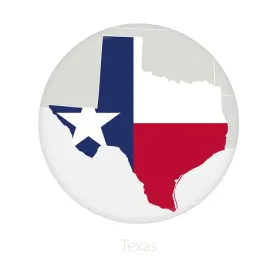Key Takeaways:
-
What: The Texas Commission on Environmental Quality (TCEQ) has revised its policy on calculating monetary penalties for administrative enforcement actions.
-
Who Is Affected: Entities with operations regarding which TCEQ conducts an investigation on or after January 28, 2021 about alleged violations that occurred or began on or after September 1, 2011.
-
What Should I Do:
-
Review updated TCEQ Penalty Policy.
-
Advise your corporate and Texas facility management and environmental staff to expect higher TCEQ administrative enforcement penalties going forward, particularly for more significant violations.
-
Consider initiating an audit pursuant to the Texas EHS Audit Privilege Act, pursuant to which you may be able to detect and correct disclosed violations without any TCEQ monetary penalty.
TCEQ has issued a revised Penalty Policy that expands the agency’s penalty discretion overall, allowing for the assessment of higher penalties for most violations. The revision also incorporates updated content to reflect statutory changes that have gone into effect since the policy was last revised on April 1, 2014. Although the Penalty Policy was due for update, the key driver for adopting a new version at this time was to enhance the agency’s authority to assess higher penalties for catastrophic events of the type that have occurred over the past several years (e.g., the March 2019 Intercontinental Terminals Company chemical storage tanks fire in La Porte).
The changes adopted include the following:
-
Increases to the percentage of the applicable statutory maximum penalty to be applied to penalty calculations, which will result in higher penalty assessments:
-
Actual Releases:
-
“Major harm” violations by minor sources:
-
Increased from 30% to 50%
-
-
“Moderate harm” violations:
-
Major sources – increased from 30% to 50%
-
Minor sources – increased from 15% to 25%
-
-
“Minor harm” violations:
-
Major sources – increased from 15% to 30%
-
Minor sources – increased from 5% to 15%
-
-
Major Programmatic Violations:
-
Minor sources – increased from 5% to 10%
-
Major sources – increased from 15% to 20%
-
-
-
-
Increases to the frequency TCEQ can select in determining the number of violation events applied to continuing violation penalty calculations, which provides flexibility to assess significantly higher penalties for continuing violations:
-
Actual Releases:
-
“Minor harm” – revised from “up to quarterly” to “up to monthly”
-
“Moderate harm” – revised from “up to monthly” to “up to weekly”
-
-
Potential Releases:
-
“Minor harm” – revised from “single event” to “up to quarterly”
-
“Moderate harm” – revised from “up to quarterly” to “up to monthly”
-
“Major harm” – revised from “up to monthly” to “up to weekly”
-
-
Programmatic:
-
“Minor” – revised from “single event” to “up to quarterly”
-
“Moderate” – revised from “up to quarterly” to “up to monthly”
-
-
Elimination of the 20% early settlement deferral for respondents that have two or more administrative penalty orders for specified air, wastewater management system, or solid waste violations that occurred within the two years immediately preceding the date of the first alleged violation included in the investigation at a site.
Although TCEQ had proposed creating an “other factors that justice may require” penalty enhancement of 20% for reportable emissions events that occur in counties with populations of 75,000 or greater, the agency did not include that change in the revised policy.
This Fifth Revision of the policy will apply to investigations on or after January 28, 2021 about alleged violations that occurred or began on or after September 1, 2011. With anticipated higher penalties for most TCEQ enforcement actions and expectations of increased enforcement under the Biden Administration, companies should consider utilizing the Texas EHS Audit Privilege Act to assess noncompliance now, especially for high-priority agency initiatives (e.g., emissions events). The Biden EPA is unlikely to bring enforcement for violations granted privileges and immunities under the Texas Audit Act and only recently reaffirmed its commitment to the EPA Audit Policy. Industry self-identification, disclosure and corrective action will remain an important compliance policy for both the TCEQ and EPA.





 />i
/>i

